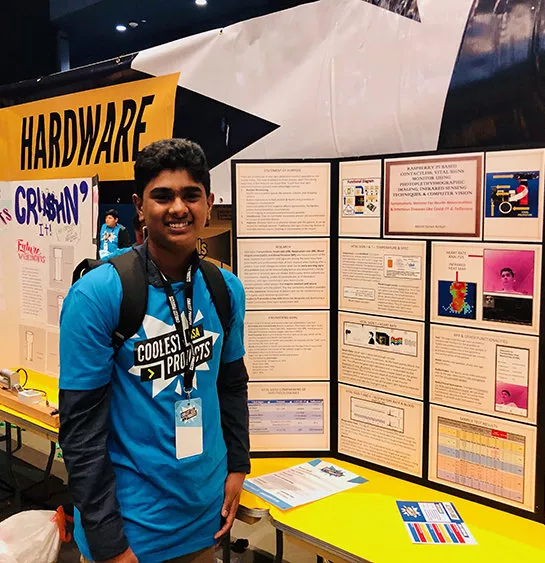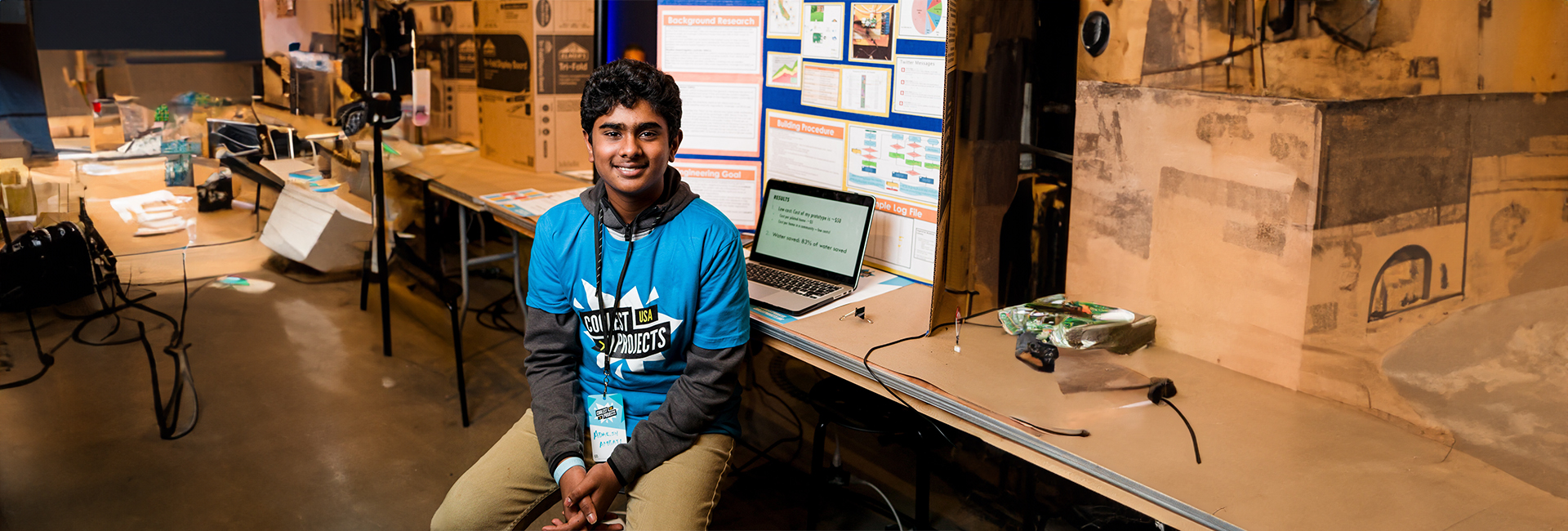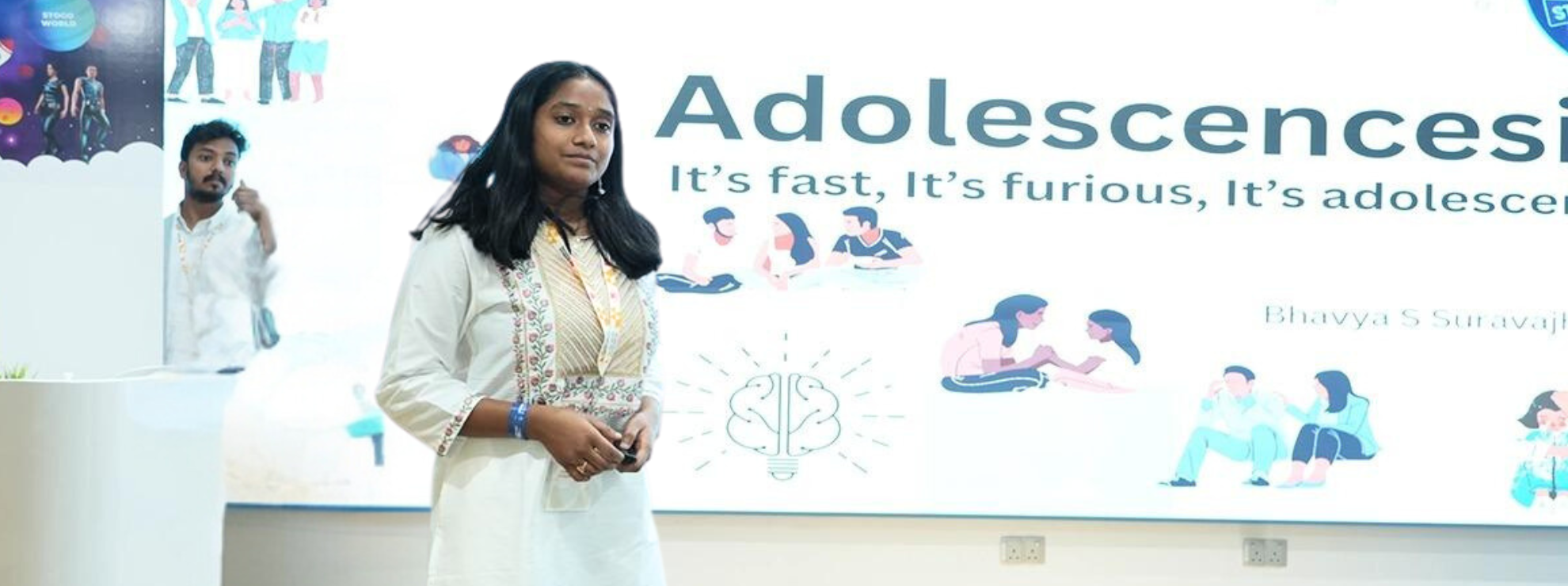(November 3, 2024) In sixth grade, Adarsh Ambati noticed something unusual in his hometown of San Jose, California. The frogs in the nearby creek had stopped croaking, and the once lush green lawns were turning brown, stark evidence of a drought affecting the region. Although his family was conscious about conserving water, many neighbours neglected to turn off their sprinklers, resulting in significant waste. This realisation sparked a fire in young Adarsh — a determination to create solutions for environmental crises.
At just 13 years old, Adarsh’s life took a dramatic turn when his mother suffered a third-degree heart block. Watching her connected to monitoring equipment, he became inspired to develop a portable, cost-effective device to track vital signs without hindering mobility. This ambition marked the beginning of his journey as an innovator and STEM promoter.

By the time he won the prestigious Gloria Barron Prize in 2021, Adarsh had made remarkable strides, introducing projects like the Community Sprinkler and an Amphibian Biodiversity Protection Initiative, showcasing his commitment to addressing environmental challenges.
The Contactless Monitor
Now a mathematics major at Stanford University, Adarsh’s first project — the Contactless Monitor — was completed just nine months after his mother’s health crisis. Fortunately, her condition improved, allowing him to conduct over 1,000 tests on his prototype as part of a pilot study involving 40 participants. “It took me around nine months to develop the device and build an app with notifications so doctors could use it, but also regular people,” he said in an interview. “Because it’s contactless and relatively portable, it could even be used to detect infectious diseases like Covid-19.”
He was recognised by Davidson Fellows for his project which left him honoured and elated. “This recognition bolsters my confidence and propels me to further advance my project. It validates not only my work but also that of my family members, teachers, friends, and mentors who were instrumental in the success of my project.”


The contactless feature helps minimise exposure for healthcare providers, especially critical during the COVID-19 pandemic. Furthermore, this low-cost innovation strengthens home healthcare systems, allowing for self-quarantining without burdening hospitals. The continuous monitoring capability can even help identify health issues like Sudden Infant Death Syndrome, which can be fatal and unexpected.
Adarsh’s keen awareness of the challenges in his community fueled his desire to innovate. Growing up in California, he observed neighbors using automatic sprinklers that wasted water, prompting him to develop a solution to combat this inefficiency.
A Low-Cost Community Sprinkler Alert System
“While going to school in the rain one day, I saw one of my neighbors with their sprinklers on, creating run-offs,” he shared with Vintage Billboard. “Through research, I found that 25 percent of the water used in an average American household is wasted each day due to overwatering and inefficient watering methods.”
In 2016, Adarsh Ambati began creating a prototype for a smart, low-cost community sprinkler alert system. After conducting a two-month pilot with 10 neighboring homes, he discovered the potential to save approximately 50,000 gallons of water in just a few months. “The sprinkler system is compliant with water regulations, to cost-effectively save water for entire neighborhoods using a Raspberry Pi, moisture sensors, PyOWM (weather database), and by utilizing free social media networks like Twitter,” he explained.
The sprinkler alert system not only detects moisture levels but also integrates real-time weather forecasts to optimize watering schedules. With a prototype cost of around $50, Adarsh believes it can be reduced to just five cents per household since it serves entire communities.
A Scalable Model
In Northern California, where outdoor landscaping consumes an average of 100 gallons of water per household daily, the potential impact is significant. Adarsh presented his system to the San Jose City Council, who considered implementing it in public areas to conserve water.
Recognition followed quickly; in 2019, he won MagPi Magazine’s Coolest Projects USA competition, and in 2021, he received the Gloria Barron Prize for his efforts. As the founder of Gro-STEMS, Adarsh sells succulents to fund technology training at the LifeMoves Homeless Shelter in San Jose and Aarti Girls School for abandoned children in Kadapa, India.
An Inspiring Innovator
Adarsh, who loves playing the flute and reading comics in his free time, wants to become a Principal Investigator and have his own lab at an academic institution where he can “work with like-minded students and faculty to conduct research in environmental sciences/engineering, developing technologies that better the world and help protect our environment.”
Growing up in a region known for its diverse population, Adarsh Ambati has harnessed his Indian heritage and experiences to inspire action in environmental sustainability and STEM education. His initiatives, such as the development of a low-cost smart sprinkler system and the Contactless Monitor for healthcare, reflect a commitment to using technology for the greater good. Furthermore, through his organization, Gro-STEMS, he actively supports underserved students by providing technology training and resources, bridging the gap between his Indian roots and the broader Californian community.





